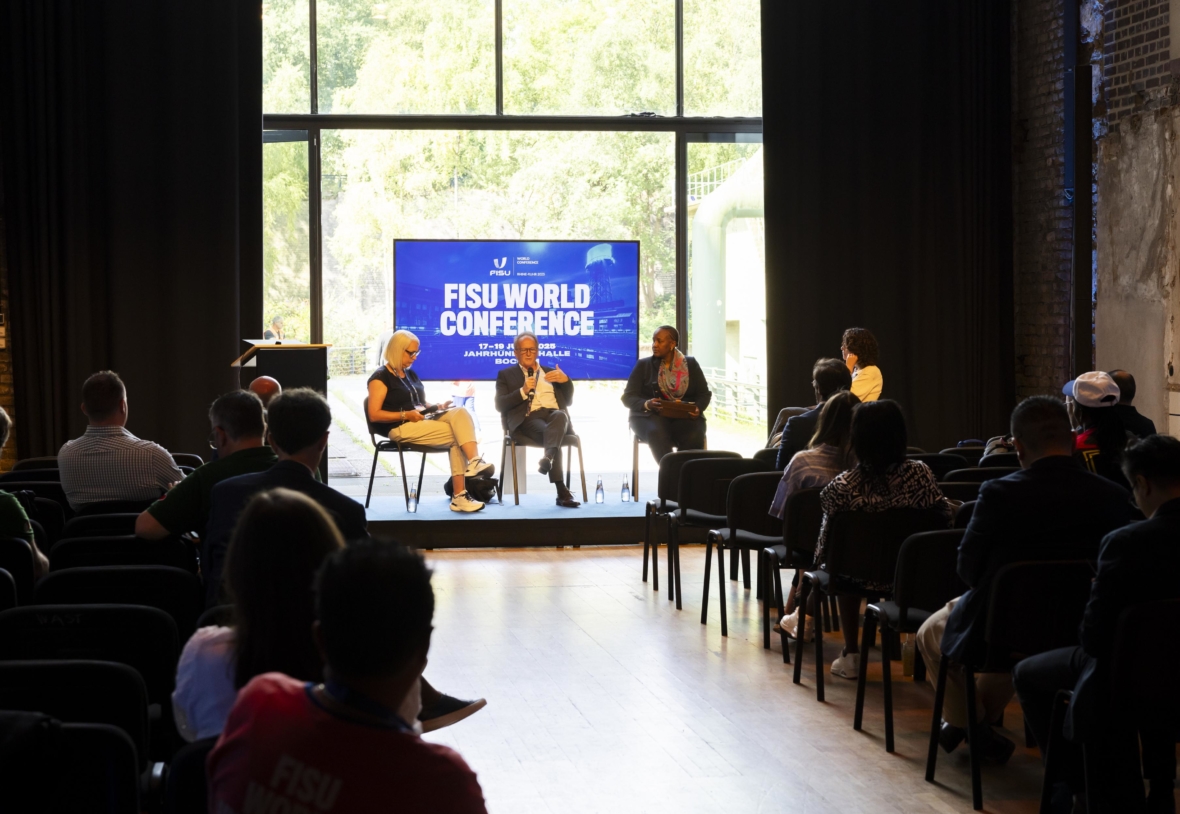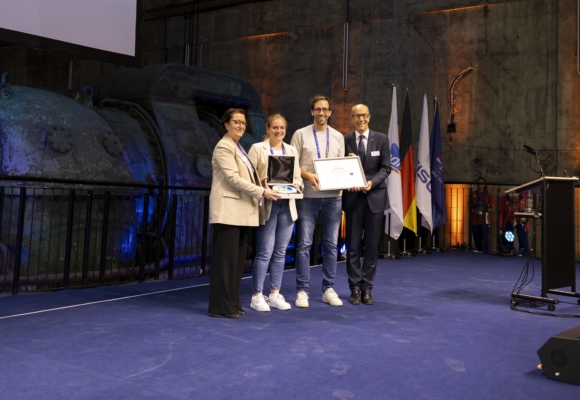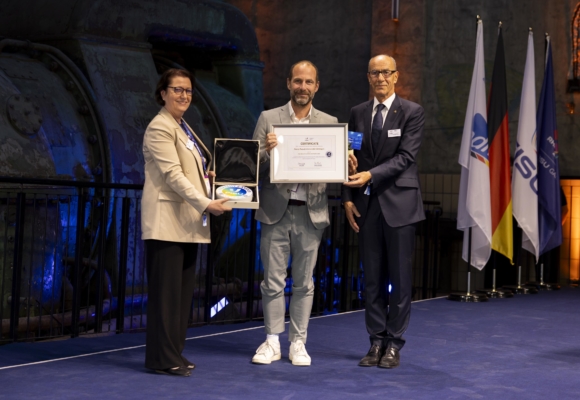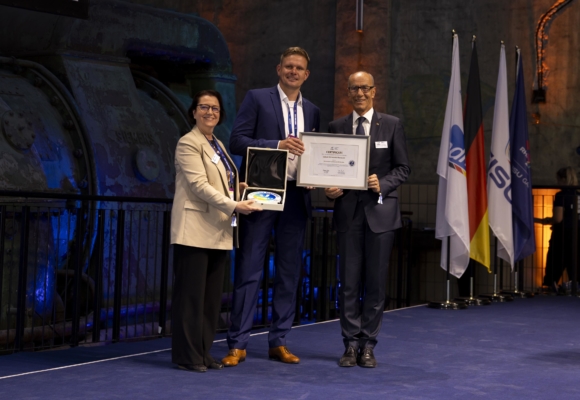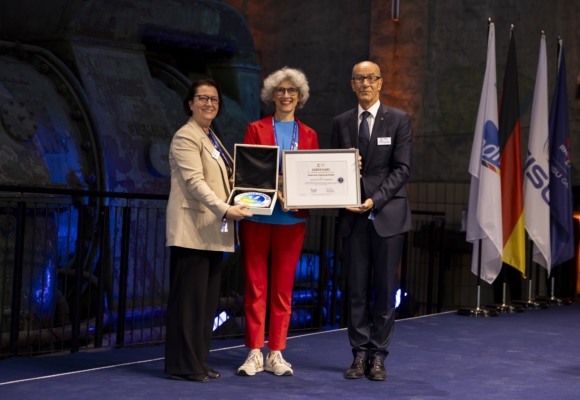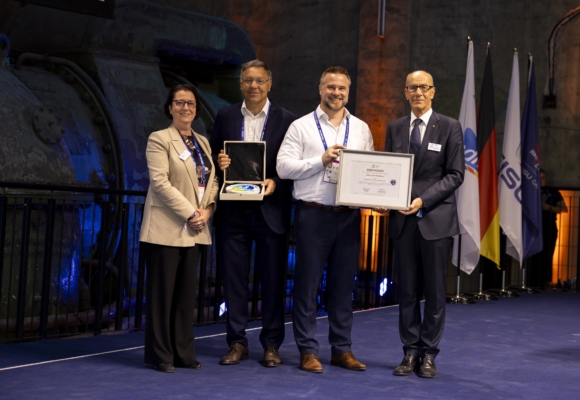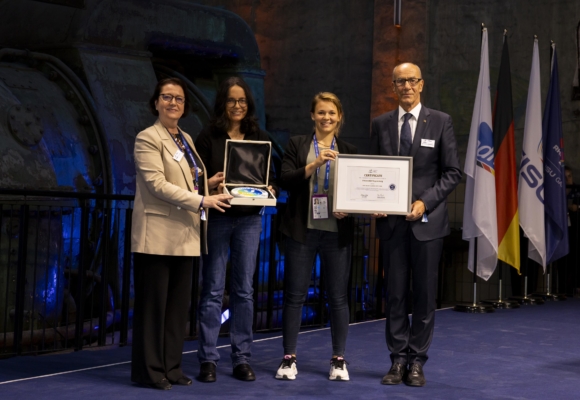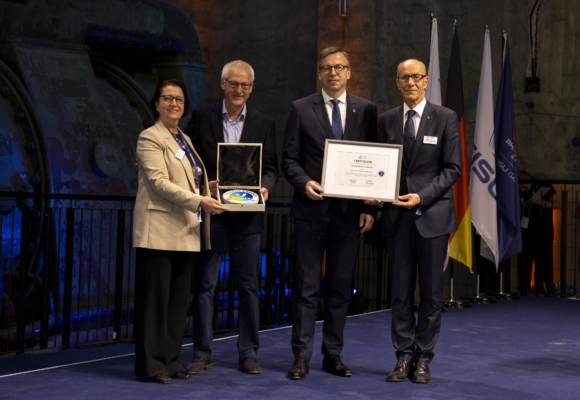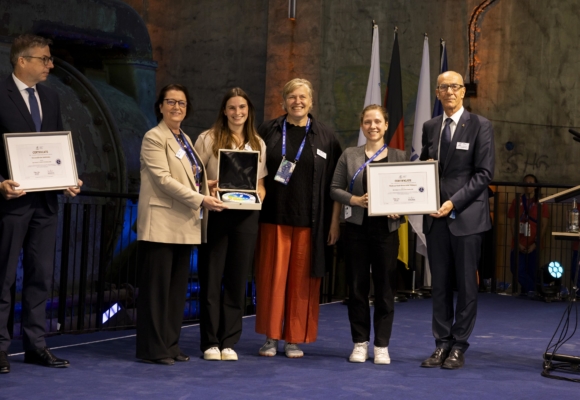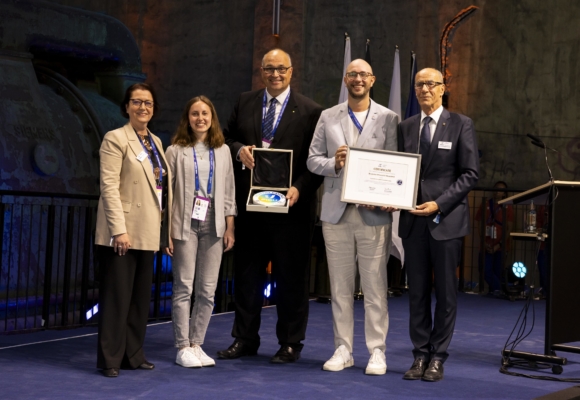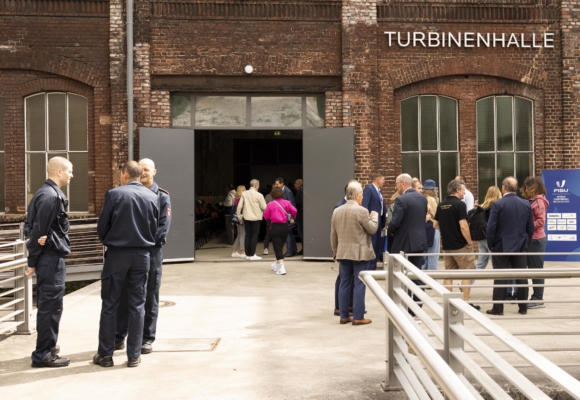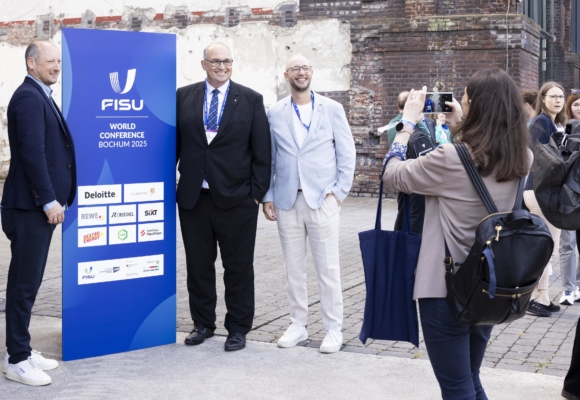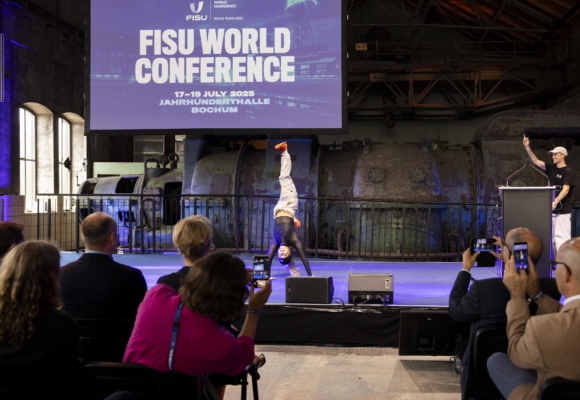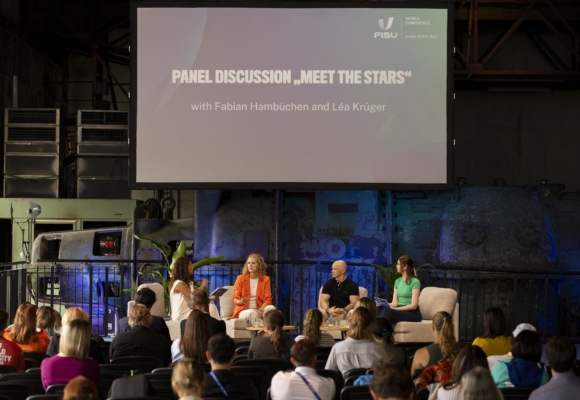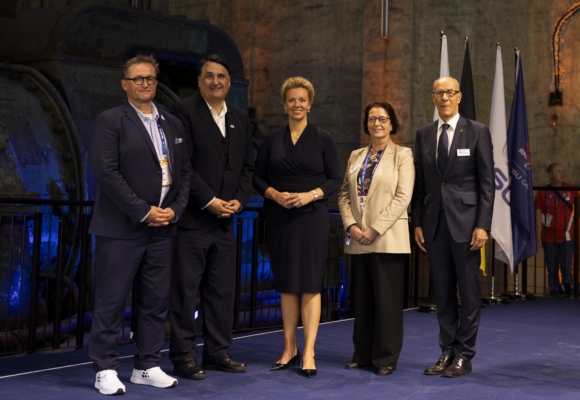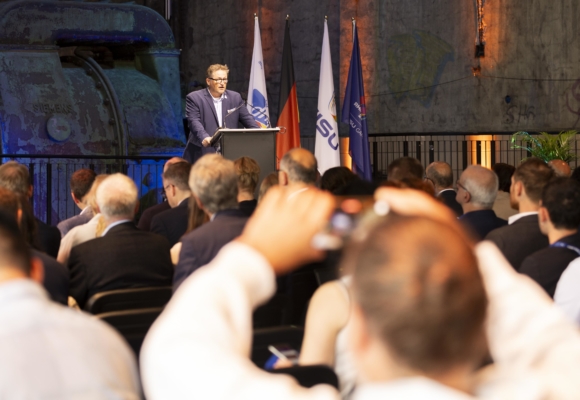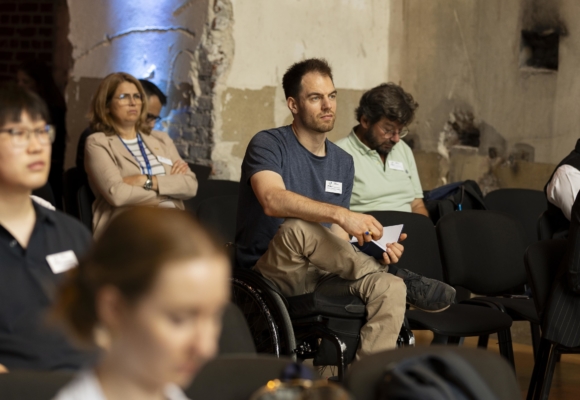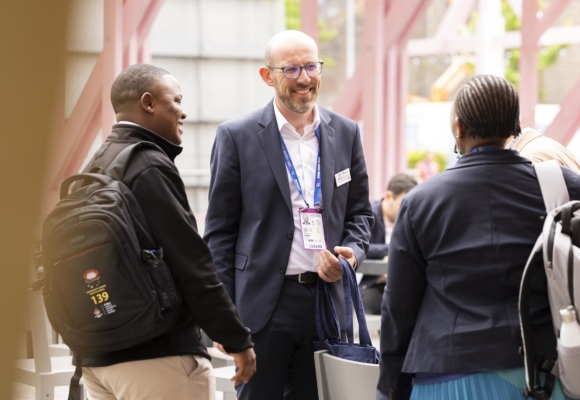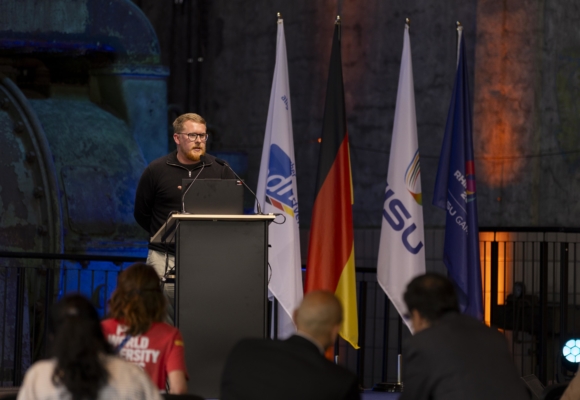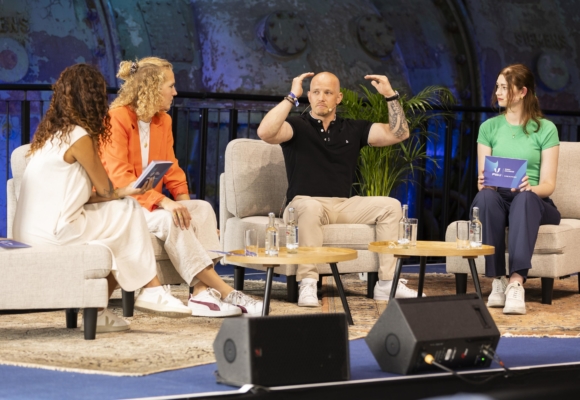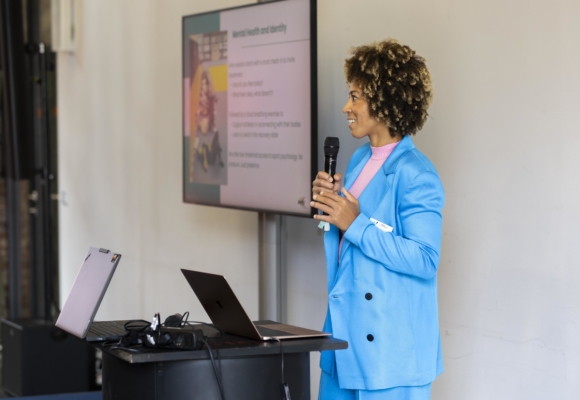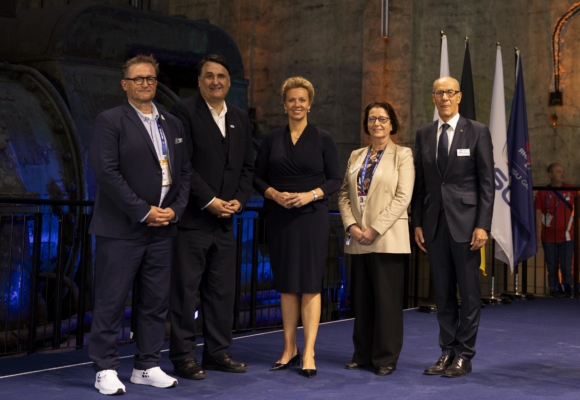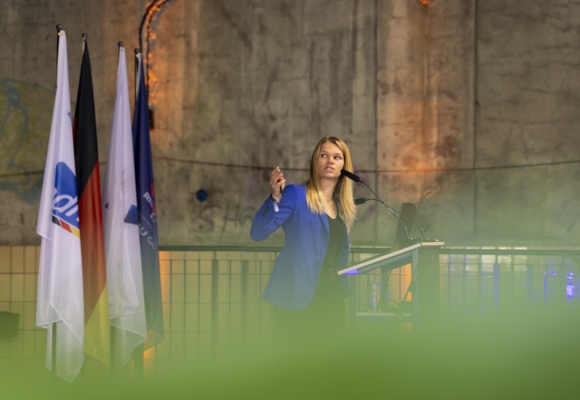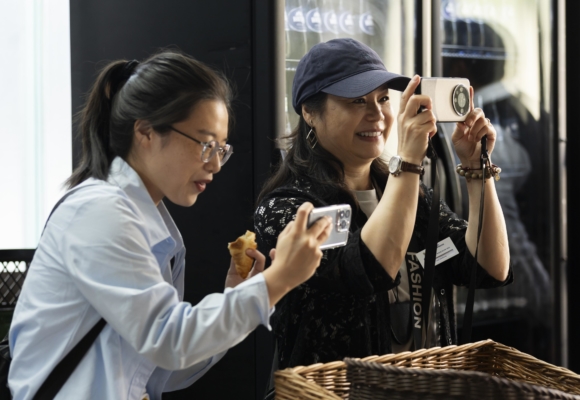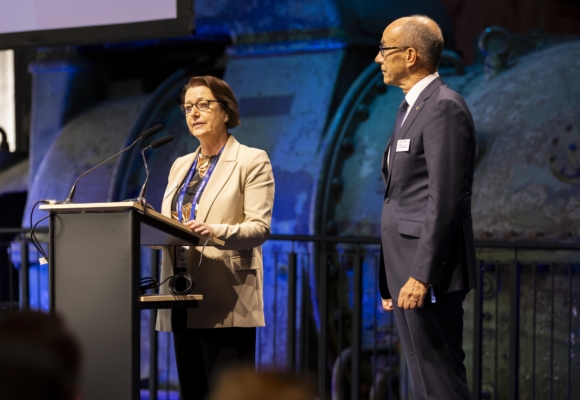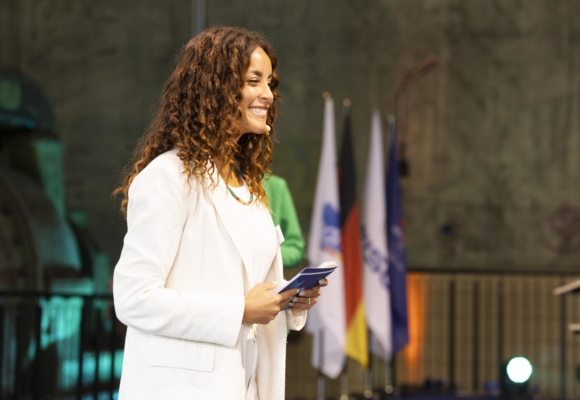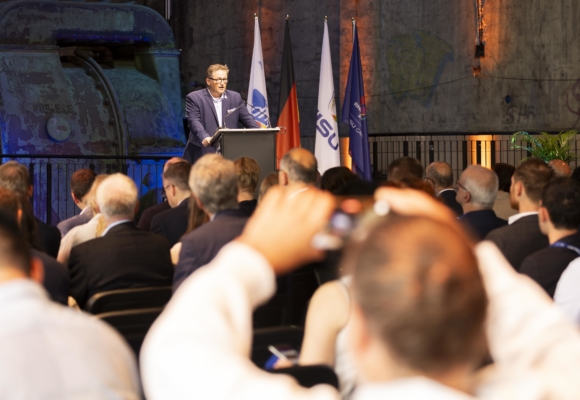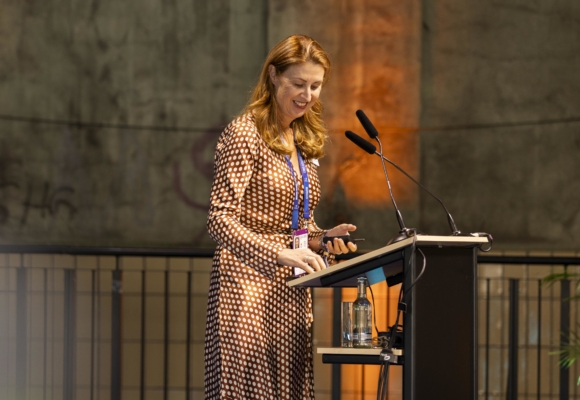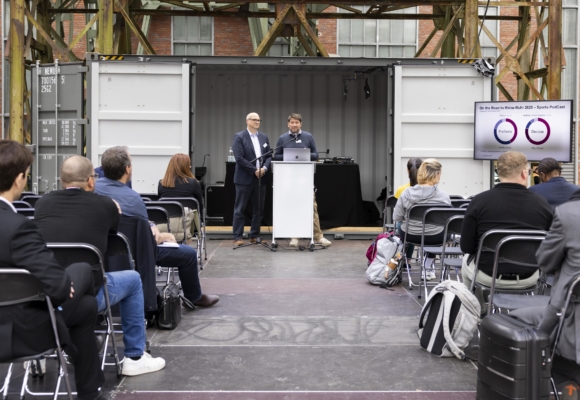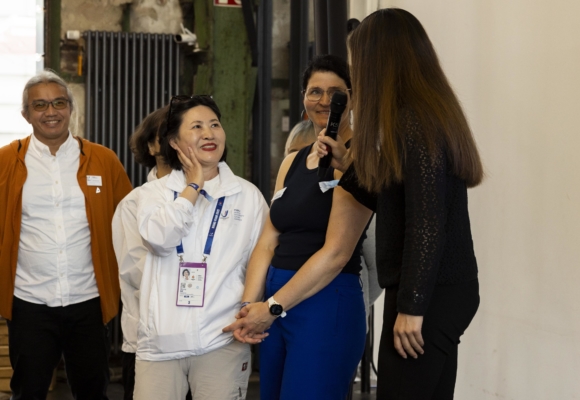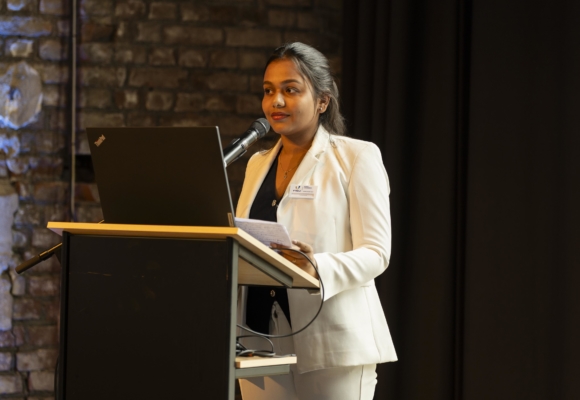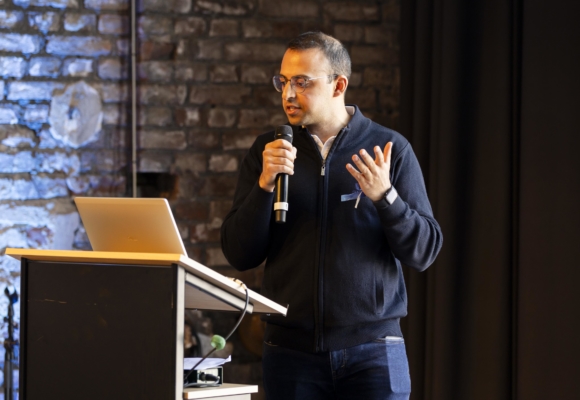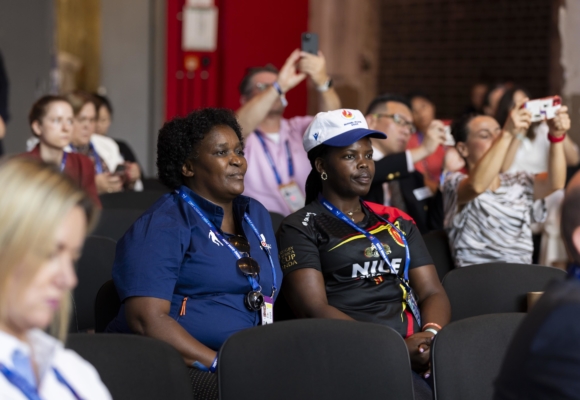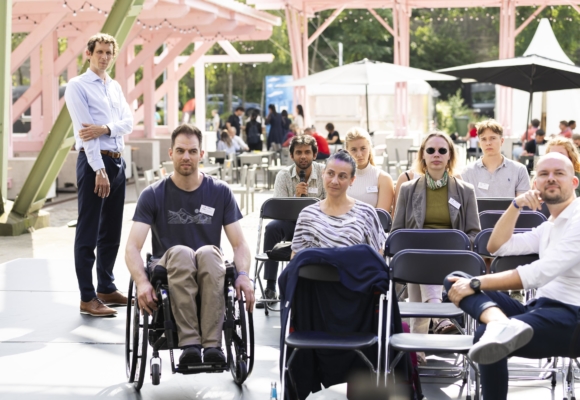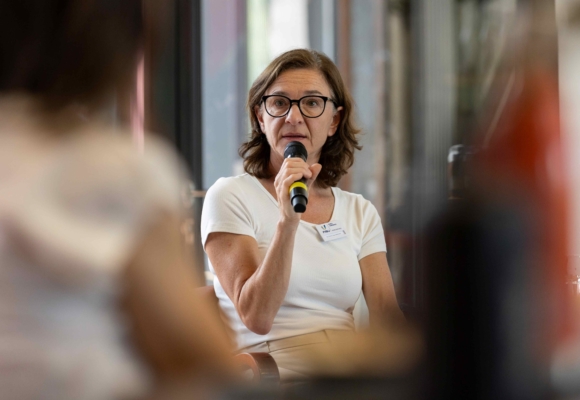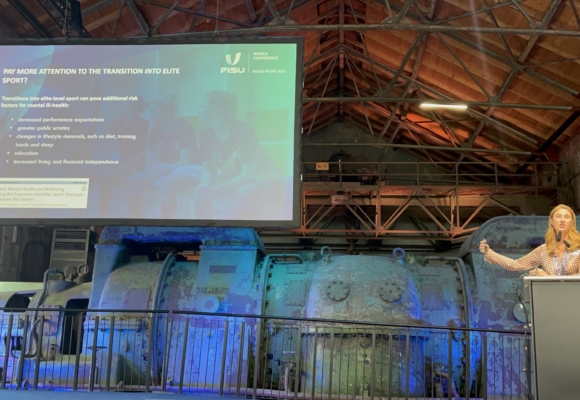The 2025 FISU World Conference opened with nine more certificates being awarded and on the second day of the event, an inspiring panel talked about the many concrete positive aspects of joining the programme.
The FISU Healthy Campus Programme was created five years ago and is aiming at reaching 200 certified universities around the world pretty soon.
After making the most of the occasion of the 2025 FISU World Conference taking place from 17-19 July at the Jahrhunderthalle in Bochum during the Rhine-Ruhr 2025 FISU World University Games to award their certificates to 9 new German universities.
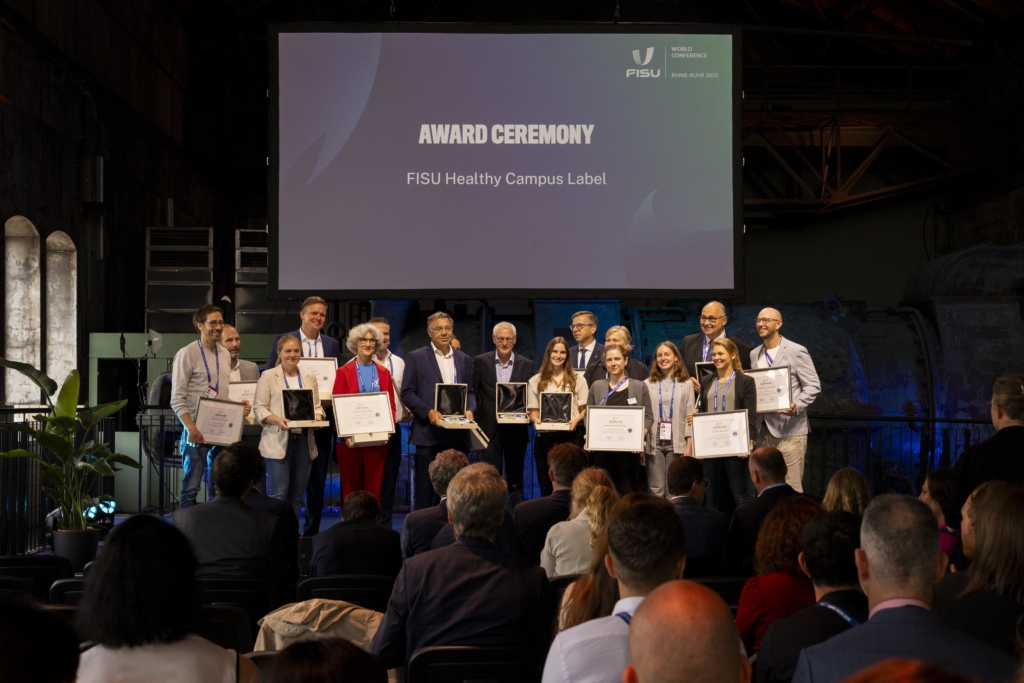
Nine more German universities certified
Uni Hannover, Uni Göttingen, Uni Paderbron, Uni Tübingen, Uni Regensburg, Uni des Saarlandes, Uni Wuppertal, HU Berlin and HS Magdeburg-Stendal were all rewarded their new Healthy Campus certificates during the FISU World Conference Opening Ceremony.
The 9 certificated universities
These certificates, together with the plaque that they will proudly showcase on site are tangible proofs of the progress being made in their institutions. And as the panellists said on the second day, being part of the Healthy Campus Programme is a very powerful tool for recognition and for ongoing change on campus, but also more widely in the community.
Concrete examples and best practices
On day two of the FISU World Forum, a discussion panel dove deeper into the programme and its many advantages.
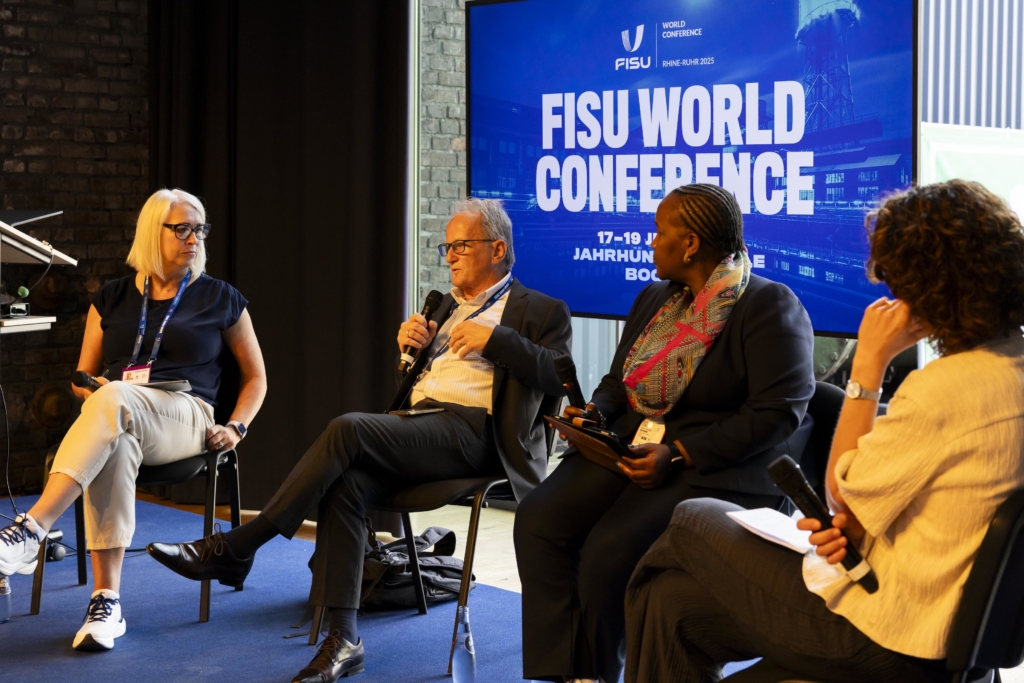
On stage, Nomsa Mahlangu – FISU EC Committee Member from University of Johannesburg in South Africa – Michelle Tanner – Vice-chair of FISU Gender Equality Committee from Trinity College Dublin in Ireland – and Anthony Martin University of Doha for Science & Technology (UDST) in Qatar were questioned by Liesbeth van Vliet-Kruisifikxs, President of the European Network of Academic Sports Services.
The university’s experience was really interesting, as they admitted the programme included a very long list of criteria to fill. But, as often, you must trust the process. “Healthy Campus is a journey”, insisted Nomsa Mahlangu. “And embarking on it is a very strong sign. Africa is rich with minerals, but poor in so many ways. Through Healthy Campus, we have taught our students how to grow their own food. We educate our students, but also the communities around us.”
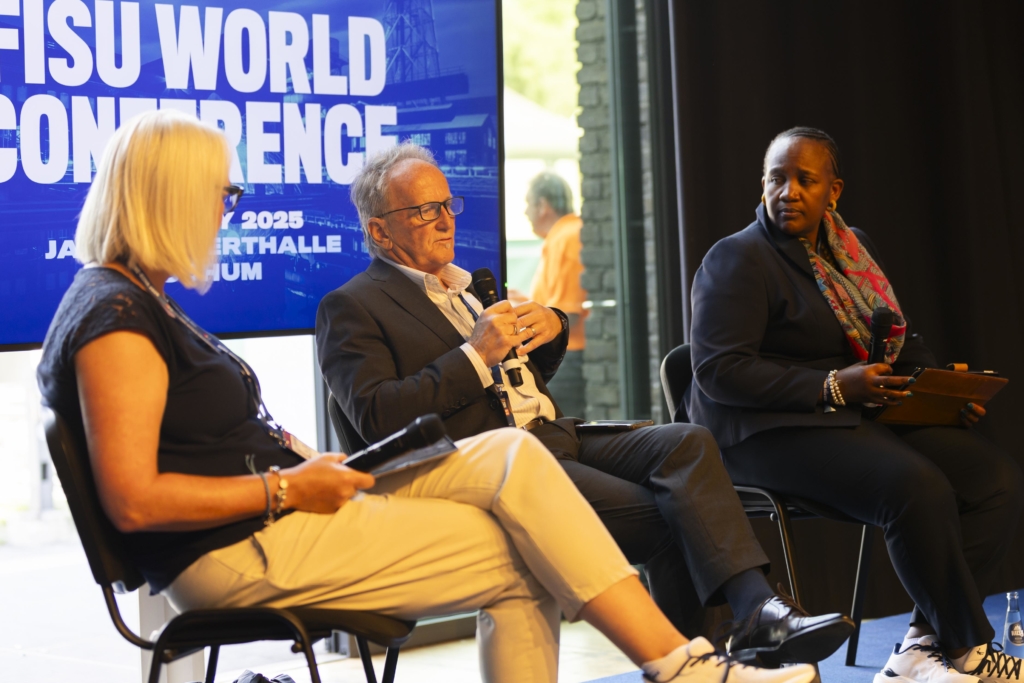
For Anthony Martin, Healthy Campus was a way to get wellness on his university’s agenda. “The University of Doha is relatively new. We are looking at how we can elevate the profile of the institution to deal will wellness and, as leaders of the community, to help find solutions for the incredible rising of healthcare costs. The programme has helped our positioning, has given us more credibility and access to more research and teaching. But it also fosters a culture of wellbeing internally, as we try to service our campus communities the best we can.”
Michelle Tanner agreed on the whole campus approach. “It is the process of addressing the criteria together which is essential and not a programme like this being only carried out by the sports or the health departments of Trinity College. This has helped us put sport at the centre of our organisation and to showcase the positive effects of being active. Up to know, the focus was mostly on intellectual ability, but I like to remind people that we need to look after the bodies that we need to transport our precious brains around!”
Pictures from the first two days
“Thanks to Healthy Campus, we have humanised sport in our institution”, concluded Nomsa Mahlangu. “Everyone at the University of Johannesburg knows that sport goes far beyond results. Now every Friday, people leave their cars behind and walk on campus. We have managed to get funds for our staff to practice sport and not only our students. We take small steps, but they will take us a long way.”
To find out more or, even better, to apply for your university to join the programme, click here. For more information on the FISU World Conference, click here.
